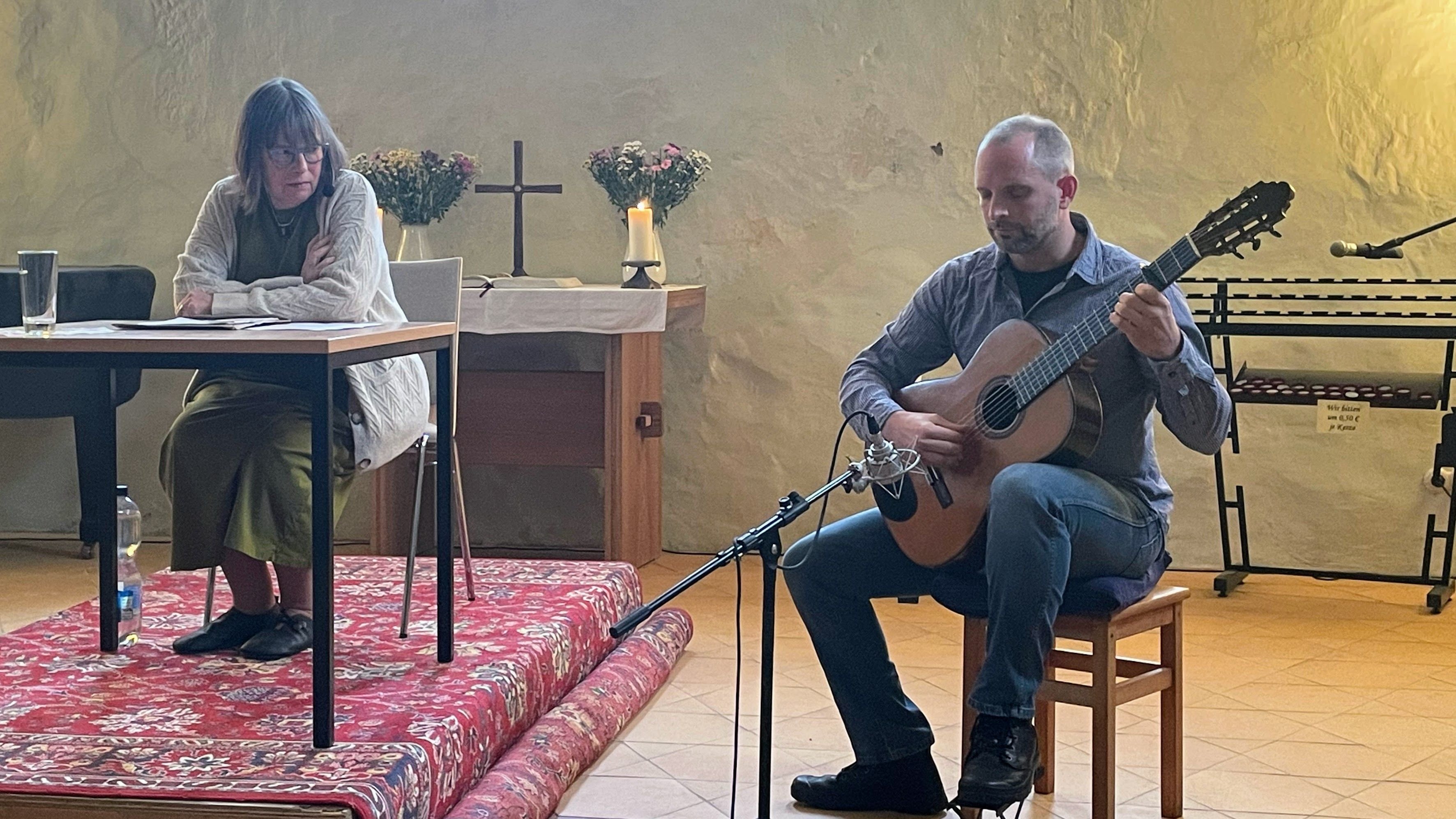“At least I still have a miserable hunger for words,” admitted the writer Kathrin Schmidt during her reading in the Malchow church. However, she did not read from the novel, as announced, which she no longer wanted to publish in 2020 due to current events. For the listeners in the church, the two literary treatises from May and August 2024 unexpectedly bore witness to times in which “the words change their meaning as they are spoken.”
Kathrin Schmidt described her experiences in clear sentences interwoven with poetry and was able to capture German history from her childhood in the GDR to negotiations at the round table to state framework policy and warmongering.
Writing becomes more difficult
“It’s no joke that I have to search for myself so often among the mountains of news,” she said in her speech on the 100th anniversary of Franz Kafka’s death at the Academy of Arts, which was presented to the audience in Malchow. The audience heard how the author questioned her ability to write.
Kathrin Schmidt freely admits to a state that perhaps suggested she was heading for “a crouched existence”. She felt tested and fascinated by the thought of what she should fight for or against with words when at the same time “bowls of fat” and “bowls of hot porridge” were blocking the way to free speech.
The author, who is also a professional psychologist, had spoken out against compulsory vaccinations for children, for example, which caused unrest during her stay as town clerk in Dresden. With her speech at the academy, she comes out of her retreat and finds words that will stick in the listeners’ minds.
Dealing with life
The second essay is intended to be her contribution to a book project that will be devoted to the topic of East Germany between democracy and right-wing populism. Where the academy speech ends with the looming threat of war, the second refers historically to the “special relationship with the area further east”. This contribution is not characterized by revanchism, but rather by “a confrontation with life born of necessity,” a close look at old traumas.
Until she was 14, Kathrin Schmidt shared a room with her great-grandmother, who came from Königsberg, and admits that her stories gave her “an anchor point further to the east.” This directs her attention to a Europe where “borders, rulers, and residents were all mixed up.” “West Germany confused itself with Germany and Western Europe with Europe,” she says, explaining her surprise at where the ideal connection to the East and the aversion to western-influenced “transatlantic fury” could come from.


